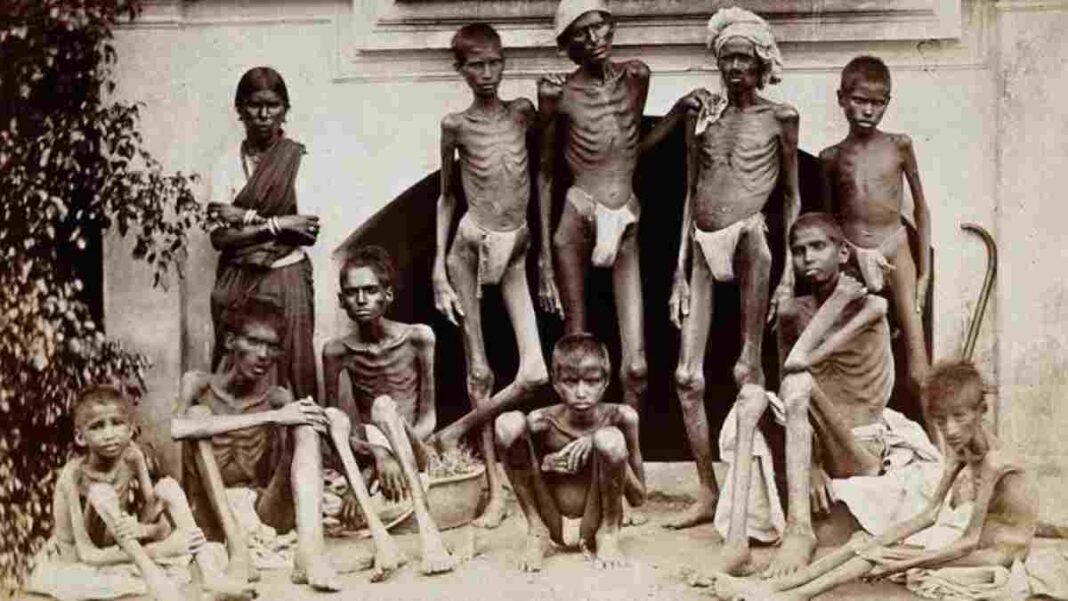INDIA: Winston Churchill, the Prime Minister of Great Britain during World War II, has long been criticized for his role in the Bengal Famine of 1943.
Many people think that Churchill and his government could have stopped the famine, which killed about 3 million people, and that it was made worse by what they did.
The Bengal famine, also known as the Bengal Holocaust, was a man-made disaster that resulted in the deaths of an estimated 3 million people in the Bengal region of British India.
The Bengal Famine was caused by a combination of factors, including a cyclone that devastated the region’s crops, a lack of food supply due to the war effort, and poor economic policies.
The famine affected India’s Bengal and Orissa provinces, where rice was the main staple food.
But many people say that Churchill’s focus on military strategy and his refusal to put the needs of the Bengal region first made the disaster much worse.
Churchill’s role in instigating Bengal Famine
One of Churchill’s key decisions was to divert food shipments away from India to support the war effort in Europe.
During the war, British forces in India requisitioned large amounts of rice and other foodstuffs to feed their troops and export to other parts of the British Empire. This led to a food shortage in the local market and a rise in prices.
The British government, led by Churchill, was aware of the dire situation in Bengal but did little to alleviate the people’s suffering. Churchill was focused on winning the war and believed India was a drain on British resources.
In a 1942 memo, he wrote, “I hate Indians. They are a beastly people with a beastly religion.” He also stated, “The famine was their own fault for breeding like rabbits.”
His government also refused to send aid to India, despite pleas from Indian leaders and British officials on the ground. “The starvation of underfed Bengalis is less serious than that of sturdy Greeks,” Churchill wrote in a 1943 memo.
Churchill’s words show that he didn’t care about or understand the situation in India. He also thought the famine was caused by too many people, not a bad policy.
Churchill’s statements reveal his lack of concern for the Indian population and his belief that their lives were less valuable than those of Europeans.
In a speech to the House of Commons in 1943, Churchill defended his government’s actions in India, stating, “I do not admit that a wrong has been done to these people by the fact that a stronger race, a higher-grade race, a more worldly-wise race, to put it that way, has come in and taken their place.”
However, this view was not shared by many of Churchill’s contemporaries. Lord Wavell, the Viceroy of India, wrote in his diary, “Winston is indifferent to the starvation of the Indians. He is more concerned with the food of the troops.”
Leo Amery, the Secretary of State for India, also wrote in his diary, “Winston’s complete lack of interest in the Bengal famine is scandalous.”
The Bengal famine was one of the worst humanitarian disasters of the 20th century and directly resulted from Churchill’s policies.
His refusal to provide aid and his diversion of food shipments away from India contributed to the deaths of millions of people. While Churchill is remembered for his leadership during World War II, his role in the Bengal famine is a dark stain on his legacy.
The Bengal famine was one of the worst humanitarian disasters of the 20th century and directly resulted from Churchill’s policies. His refusal to provide aid and his diversion of food shipments away from India contributed to the deaths of millions of people.
Churchill and his government played a big part in making the crisis worse, and this part of British colonial history should be remembered as a dark time.
His racist beliefs and disregard for the lives of Indian people resulted in the deaths of millions of people. His words and actions during the famine show that he cared more about winning the war than helping people.
Also Read: Mahindra Group Chairman Mocks Churchill’s Remarks on Indian “Low Calibre” amid Sunak’s Win



